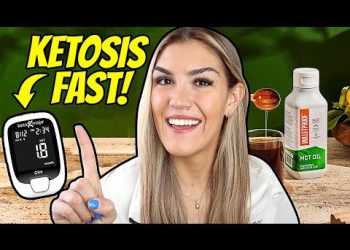Understanding Hypertension and Blood Pressure
If you struggle with high blood pressure, also known as hypertension, you might be interested in understanding its causes. Blood pressure is often depicted with two numbers, such as 120 over 80. The top number, systolic, represents the heart’s contraction, sending blood through your body. The bottom number, diastolic, signifies the relaxation of the heart muscle. Together, they form what we know as a heartbeat. High blood pressure occurs due to resistance in the blood flow, which puts strain on the heart.
The Role of Potassium in Managing Blood Pressure
A significant factor in managing blood pressure is potassium intake. Surprisingly, a vast majority of hypertension cases are linked to potassium deficiency. Potassium plays a pivotal role by controlling the vascular system’s tone, which is directly connected to blood pressure. It also lowers adrenaline, reducing blood pressure spikes.
Common Misconceptions About Sodium and Potassium
Many health recommendations focus on reducing sodium to combat hypertension, often neglecting the role of potassium. Interestingly, reducing sodium indirectly helps increase potassium levels, which is crucial because an imbalance between sodium and potassium can exacerbate hypertension.
Potassium’s Effect on the Nervous System
Potassium is a neurotransmitter for the autonomic nervous system. This connection is vital since adrenaline, which spikes during stress or physical exertion, can raise blood pressure. Potassium helps counteract this effect by easing the system.
The Controversy of Potassium Supplementation
Many potassium supplements only offer about 99 milligrams per tablet, far from the 4700 milligrams we need daily. This gap presents a challenge in supplementing potassium efficiently, emphasizing the need for dietary intake or high-potassium electrolyte powders.
Potassium and Kidney Health
Contrary to some beliefs, potassium is generally beneficial for kidney health. However, for individuals with advanced kidney disease, potassium intake must be carefully monitored. In general, a healthy intake of potassium is protective rather than harmful.
Dietary Sources of Potassium
Leafy green vegetables are an excellent source of potassium, but consuming the required amount can be challenging. It would take 7 to 10 cups of these greens to meet daily needs, compared to the average consumption of only a cup and a half. These vegetables also provide magnesium, which complements potassium in managing blood pressure.
Historical Potassium Consumption Levels
In prehistoric times, our ancestors likely consumed significantly higher levels of potassium, estimated between 11,000 to 15,000 milligrams daily. This intake was due to a diet rich in vegetation and available food, contrasting sharply with today’s processed food consumption.
The Impact of Modern Diet and Lifestyle
Modern diets high in refined foods and sugars contribute to potassium loss. Increased stress levels, triggering adrenaline and cortisol, also drain potassium from the body. It’s essential to adjust dietary habits to maintain a healthy potassium level.
Your Personal Potassium Challenge
Consider increasing your potassium intake for a week, perhaps by consuming more salads or finding a quality electrolyte powder. This adjustment might yield noticeable benefits in blood pressure management. For visual guidance on the amount of salad required, refer to the accompanying visuals in the video.











